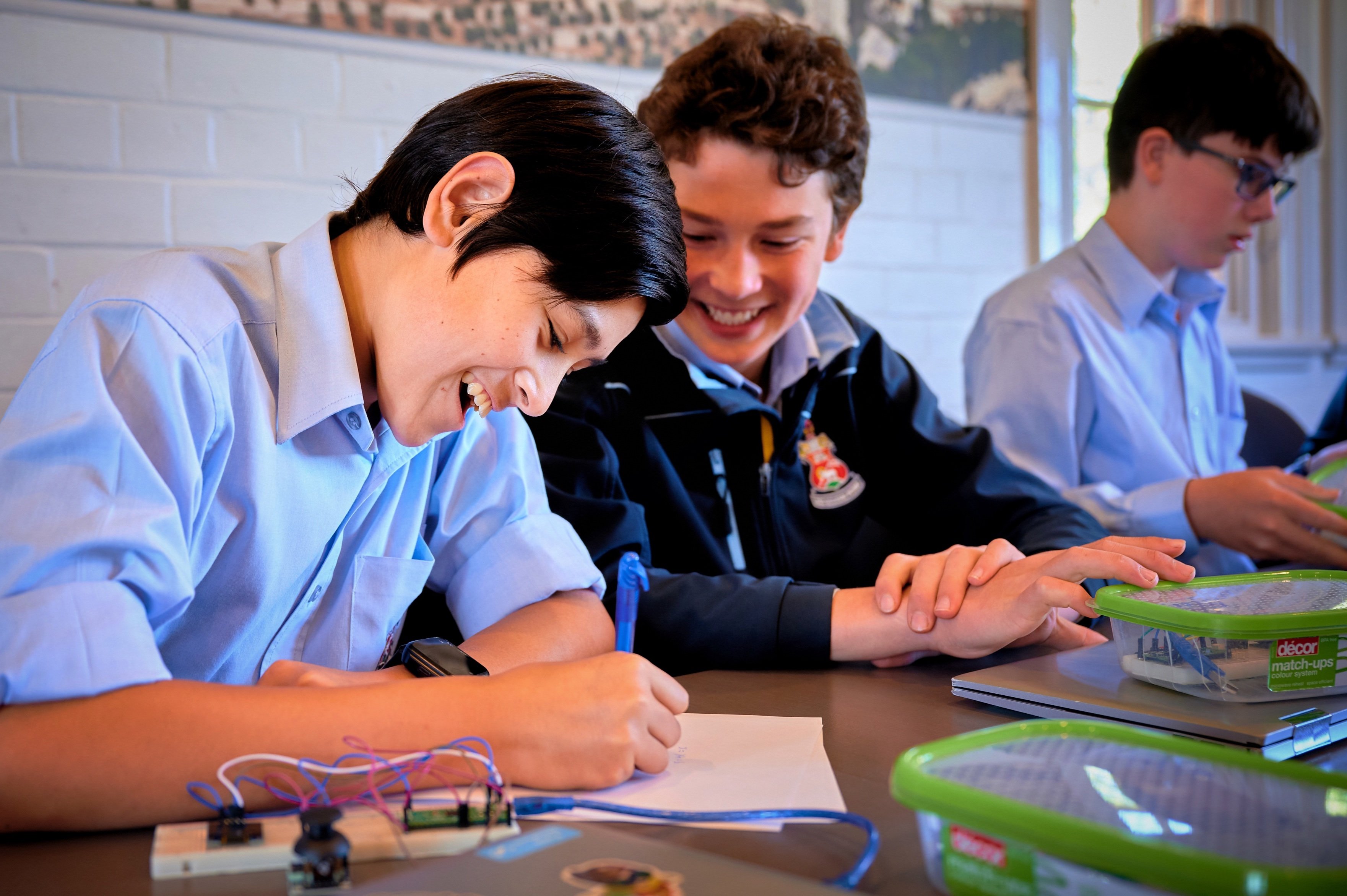
Canberra Grammar School
Code Cadets
👋
Hello from San Francisco!
Over two weeks in January 2025, sixteen Code Cadets students from Years 9 to 12 went on tour.
We visited some of the largest and most innovative tech companies in San Francisco and Sillicon Valley.
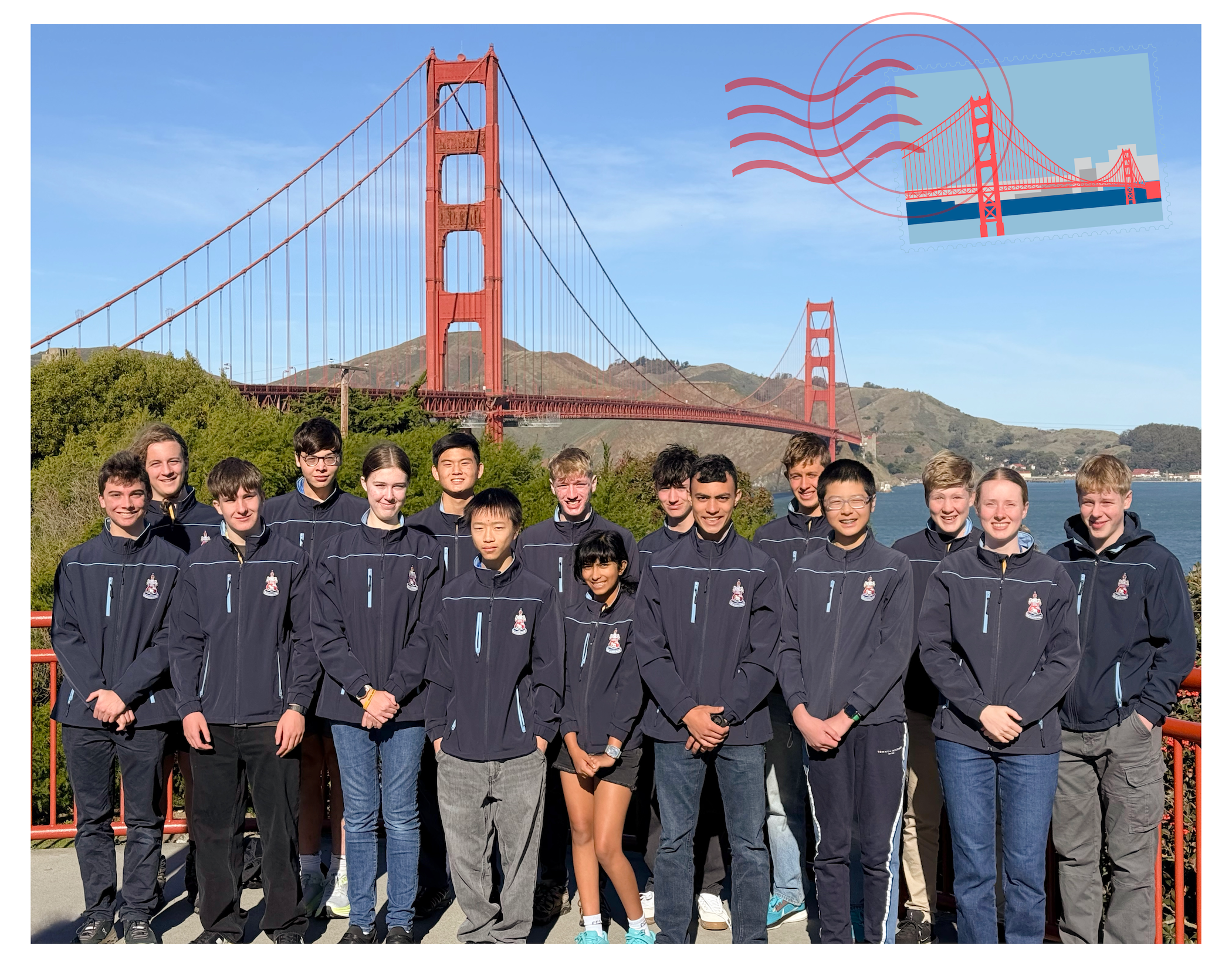
We're so grateful to the companies and professionals who have generously hosted the Code Cadets, sharing their time, expertise, and insights — thank you for all your support!
We'd like to thank Silicon Catalyst for making this experience even more impactful for our students.

On the pulse.
Always modern, relevant and ready for the world.
Find out what's in store for your Code Cadets programme.
Year 7
Mini machine.
Massive potential.
Kick into gear
Program a remote-control car using Python to compete against your friends in a game of robot soccer. Refine your algorithms to race to the top of the leaderboard. Once you've reached the top of the soccer leaderboards, convert your soccer-bots into sumo-bots and clash against other robots in the sumo ring.
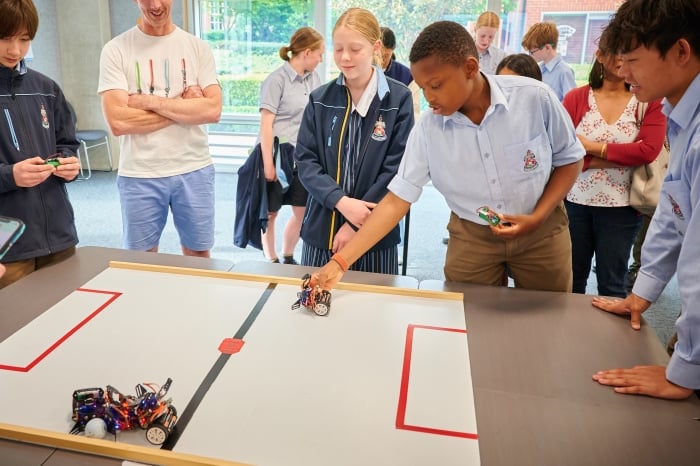
Meet the micro:bit
A miniature marvel - The micro:bit is a friendly and approachable microcontroller made by the BBC which can become part of far bigger projects than its tiny size would make you believe.
Ready to
explore?
Anyone in Year 7 can join,
no pre-existing knowledge required!
Stay tuned! Registration for 2025 will open in Term 1.
More info
This course is built around a series of fun challenges, projects and games which are designed to teach the fundamental principles and algorithmic thinking that controls robots, runs software and makes computers work.
Whether or not you've heard of the micro:bit before, this course is for you! Never touched code before? Great! The tutor team has also prepared more challenging projects for those with more experience. No matter what your experience, this course will involve challenges, learning and most of all: fun. See you in session!
Year 8
Unlimited capabilities.
Unbelievably compact.
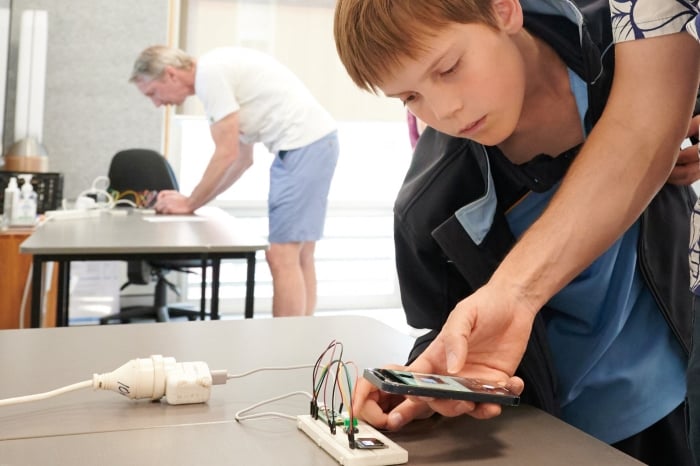
Jump to new heights
Recreate the no internet dinosaur game using a tiny OLED screen. Make it as challenging as you want, customise the appearance of your dinosaur, and compete with your friends to get the highest score. Can you reach the end of the game?
Ready to
level up?
Anyone in Year 8 can join,
no pre-existing knowledge required!
Stay tuned! Registration for 2025 will open in Term 1.
Pico-Boo!
Meet the Raspberry Pi Pico, a highly compact and customizable microcontroller. Explore it's potential by connecting screens and joysticks to create your own games.
More info
Explore hardware game development in our Year 8 course, leveraging the Raspberry Pi Pico to create captivating games and activities. Engage in hands-on learning, mastering coding fundamentals while unleashing creativity and bringing ideas to life through practical projects.
You'll be learning to program in Python, a great beginner language where we can start from the fundamentals and work our way up to advanced techniques, with extension activities available for those who have more programming experience.
Extension – Years 9 to 12
Hardware evolution.
Software revolution.
Information? Secured.
As information security becomes an increasingly large issue, you'll explore the world of cyber security and how you can make and break it! With a myriad of competitions and excursions to local firms, you'll gain real world insights into how great modern technology solutions, including cloud, are achieved.
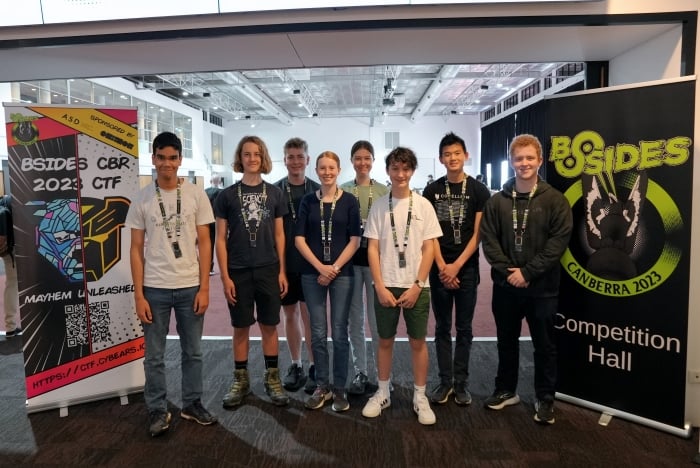
From the ground, up
Learn how computers work by building and programming a computer with the iconic 6502 microprocessor. This was the first truly low-cost microprocessor that started the personal-computing revolution. Build the computer by hand on breadboards and then program the CPU that you just built.
Ready to
innovate?
Bring a curious mind, we'll supply the rest.
Anyone in Years 9 to 12 can join.
Stay tuned! Registration for 2025 will open in Term 1.
Video production
more your style?
We've got that covered, too!
Years 7 to 12
Code Cadets Productions
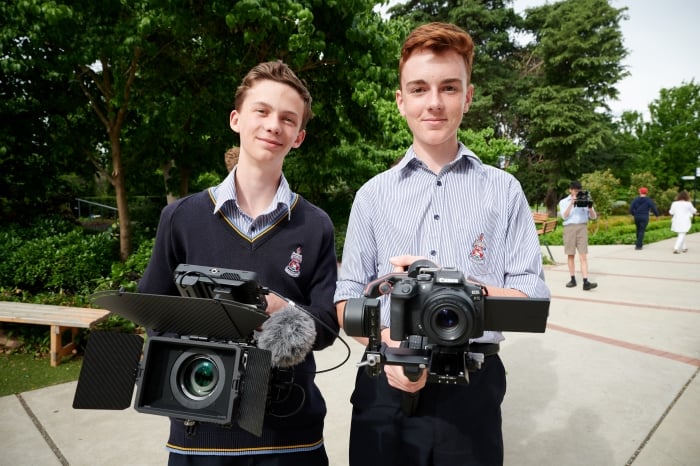
Standby, camera 2
Do you want to learn how to use professional-level cameras, work with industry clients, and gain real-world experience that will prepare you for your future? Look no further! Our after-school workshop is designed specifically for students like you, in Year 7 to Year 12.
This is your chance to join the cutting-edge world of live streaming and video production, and to gain the skills and experience you need to succeed in the future.
Ready to
zoom in?
Anyone in Years 7 to 12 can join.
Stay tuned! Registration for 2025 will open in Term 1.
Code Cadets Productions runs in parallel with the rest of our Programmes, so you can join both!
More info
In this hands-on programme, you'll learn how to live stream, create high-quality videos and use professional equipment. Our experienced tutors will teach and guide you through the latest technology and techniques and fill each lesson with exciting and involved workshops that help you better understand how a live event or a cinematography project works.
You'll also have the chance to work with clients and gain valuable experience that will teach you how to make work that stands out in the competitive world of video production. You'll have the opportunity to showcase your skills, collaborate with your peers, and create content that makes a difference.
